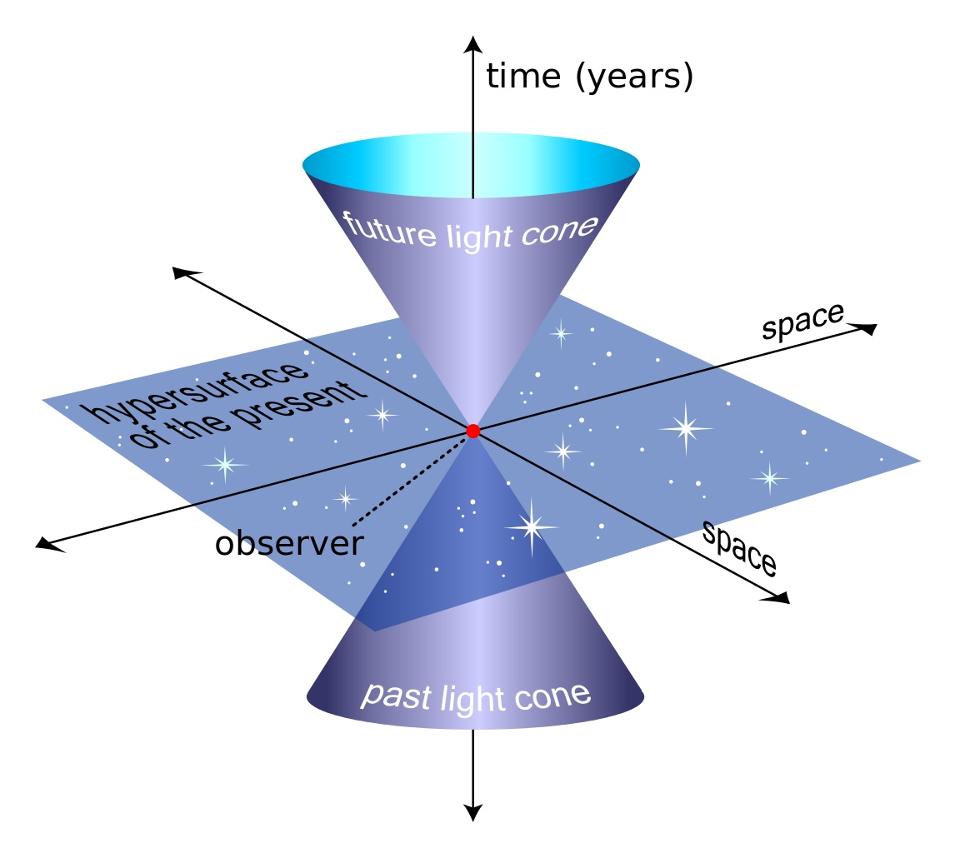Most of us have probably sat and daydreamed about what it would be like if we could travel back through time to some point previous in our lives or to another period in history. But is it just a pipe dream or is it possible that we really could travel through time and if so, what would it look like?
In 1905 Einstein came out with his theory of special relativity and in it deduced that every object in the Universe must travel through time. He also put forth that photons don’t experience time in the way we do, and only massive observers, such as ourselves, can see passages of time. For a photon, everything happens instantaneously. But because we have mass we’re always restricted to traveling at less than the speed of light in a vacuum. Also, no matter how fast you move about everything else, the light will always appear to move at one constant speed – the speed of light in a vacuum. However, this observation comes with a consequence, and that is if you observe someone in motion relative to you, their clock will appear to run slower.


 Now picture a clock that works by light being bounced back and forth in an up-down direction between two mirrors. The faster the person in motion moves about you, the more the light’s velocity moves across rather than up and down, making their clock appear to run slower. The same will go for you also – your clock will seem slower to them. But, how can this be? Surely that would mean one of you will have aged more than the other when you next meet up, so who would be older?
Now picture a clock that works by light being bounced back and forth in an up-down direction between two mirrors. The faster the person in motion moves about you, the more the light’s velocity moves across rather than up and down, making their clock appear to run slower. The same will go for you also – your clock will seem slower to them. But, how can this be? Surely that would mean one of you will have aged more than the other when you next meet up, so who would be older?
That’s what Einstein was talking about with the twin paradox problem. The answer is that if you both started off and ended in the same frame of reference yet a later time, the person who did the traveling will have aged less. This is because for them time would have passed at the slow rate which the person who stayed put would have experienced time at the normal rate. So, to travel ahead of time quickly, simply speed up to near the speed of light, travel at that speed for some time, then return to your original location.
Well, that’s forwards taken care of, but what about backward? Special relativity may get us forward, but to move backward, we need General Relativity. Here, we treat space and time as inseparable and matter and energy as what causes it to change. While our own Universe is fairly straight forward and almost entirely flat, but others used in some solutions to Einstein’s General Relativity allow you to look back on yourself. If space makes a loop back on itself, you’ll be able to travel in one direction for ages, live through certain conditions, and arrive back at the same point of time you left from. Unfortunately, that doesn’t sound like our Universe at all, so the chances of us ever traveling back in time are pretty slim. Forward on the other hand…. maybe!
Article Via FORBES, by Astrophysicist Ethan Siegel
More News to Read











